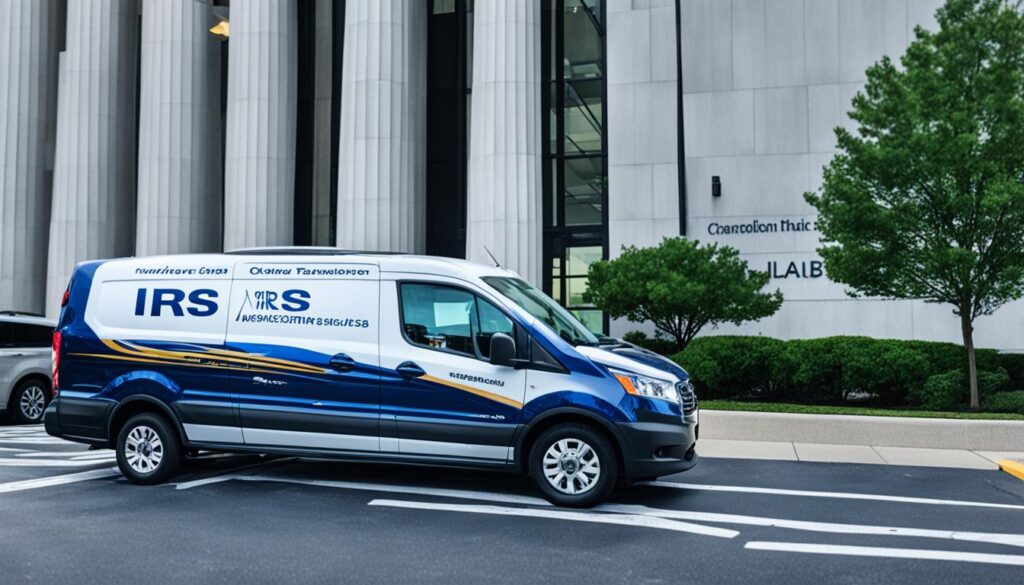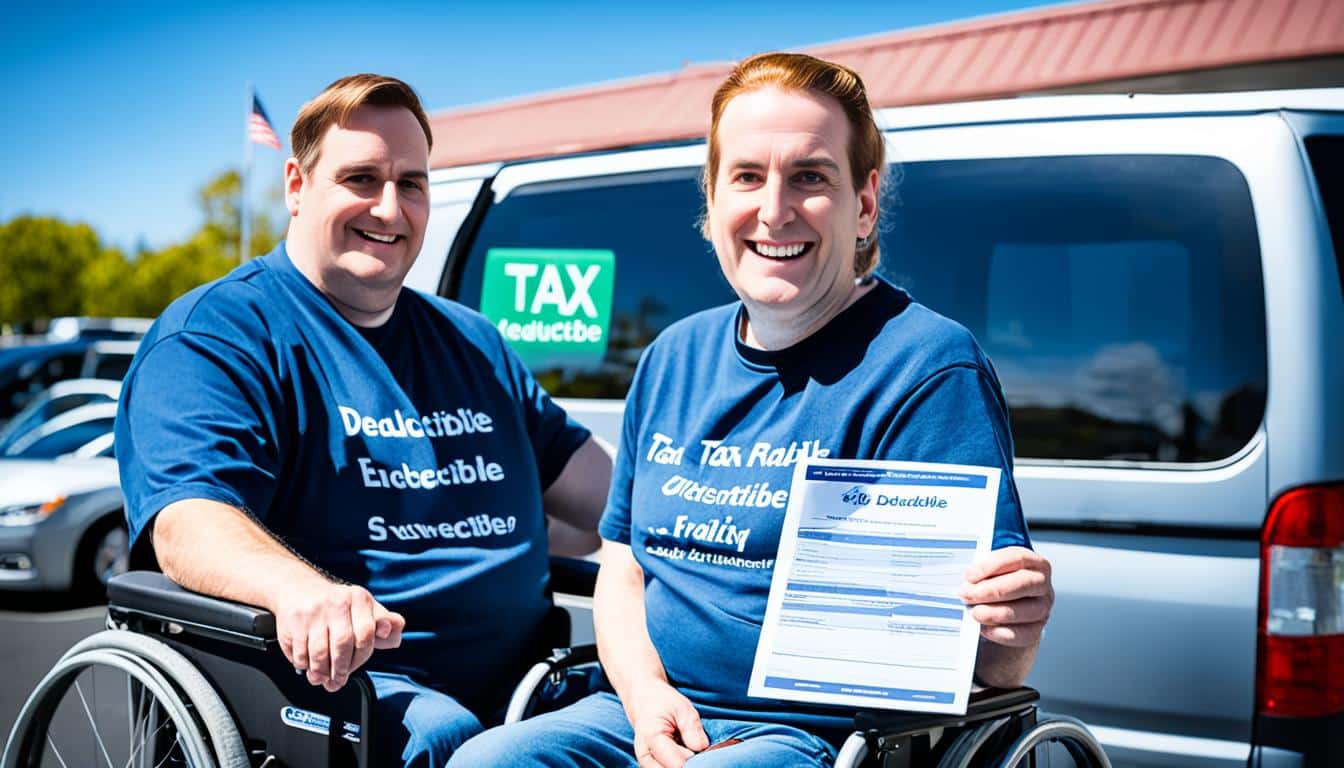Finding tax deductions can be hard, but here’s good news for those with a handicap vehicle. The IRS says if you bought or modified a vehicle for a disability, you could get tax breaks. This includes cars or vans with wheelchair ramps or hand controls for those who need them.
The government allows tax deductions for costs like modifying a vehicle to fit a wheelchair. You can also deduct the extra money you paid for the special features compared to a regular vehicle. Keep receipts for things like gas or oil used for medical needs as they count too.
Key Takeaways
- Handicap vehicles can indeed qualify for tax deductions under IRS rules.
- The difference in cost between a standard and a specially designed vehicle is deductible.
- Out-of-pocket expenses for medical reasons, like gas and oil, are deductible.
- Regular car expenses such as depreciation, insurance, and maintenance are not deductible.
- IRS Publication 502 is a crucial reference for navigating these deductions.
Understanding Tax Deductions for Handicap Vehicles
It’s important to know about the tax benefits for owning a handicap vehicle. We’ll explain how to claim these deductions properly so you can save on your taxes.

What Expenses Can Be Deducted?
Deductions aren’t just for the vehicle’s cost. Owners can benefit from:
- The extra cost of a vehicle made for wheelchairs.
- Money spent on medical vehicle use, like gas and parking.
- Modifications needed for accessibility.
Remember, regular travel and commuting costs aren’t part of these deductions.
Eligibility Requirements
Specific rules govern these deductions. You must:
- Have a doctor’s note showing you need the modifications.
- Show that the changes are key for medical reasons.
Fulfilling these requirements ensures you get the tax benefits.
Necessary Documentation
Gather all necessary documents carefully. A clear record includes:
- Receipts of the vehicle and its modifications.
- A doctor’s letter explaining why the changes are necessary.
- Any expenses related to medical use of the vehicle.
This paperwork is essential for claiming everything you’re entitled to. It helps you save more on taxes.
| Expense Type | Deductible | Non-Deductible |
|---|---|---|
| Cost Difference (Standard vs. Handicap Vehicle) | Yes | No |
| Medical Use Costs (Gas, Oil, Parking Fees, Tolls) | Yes | No |
| Modifications for Accessibility | Yes | No |
| Personal Travel and Commuting | No | Yes |
With the right documents and adherence to IRS rules, you’ll get the max deductions. This benefits anyone who owns a handicap vehicle.
Are Handicap Vehicles Tax Deductible?
Understanding handicap vehicle tax credits can seem hard. But knowing key points makes it easier. The IRS has rules that show what changes and items are tax-deductible.
Specific Modifications and Equipment
For tax deductions on wheelchair accessible vehicles, you should know the needed changes. These include hand controls, transfer seats, and ways to secure a wheelchair. These things help those with disabilities and are important for tax deductions.
IRS Guidelines and Restrictions
The IRS is clear on what is deductible for handicap vehicles. Their rules show what you need to prove the medical need for these changes. Have all your paperwork ready. Not having the right documents can hurt your deduction claim.
Examples of Deductible Expenses
Here are some things you can deduct according to IRS rules:
| Modification | Deductible Cost |
|---|---|
| Hand Controls | Cost of installation |
| Wheelchair Ramps | Additional cost over a standard ramp |
| Transfer Seats | Full cost of specialized seats |
These examples show how you can deduct extra costs for vehicle accessibility. Make sure you can prove these expenses.
Conclusion
Are handicap vehicles tax deductible? It’s a complex issue. The cost of the vehicle itself isn’t fully deductible. However, expenses for modifications and medical-use additions might lower your taxes. Understand what the IRS allows you to deduct. Keep all necessary documents ready.
To increase your chances of deducting, meet the IRS criteria. Follow IRS rules closely for tax benefits. Focus on expenses that directly help with mobility due to a medical need. Keeping detailed records of these expenses is crucial for getting the most out of deductions.
Finding your way through IRS rules can be tough. But, getting help from a tax expert can simplify things. Being well-prepared and knowing about deductions can help reduce your tax amount. So, keep your receipts, prescriptions, and IRS guidelines handy. This will help you claim your rights to deductions.








